What is MobiDash
MobiDash is a new adware infection that uses the popularity of FaceApp to spread. Security company Kaspersky discovered the adware on July 7 when users reported that after downloading the viral FaceApp from unofficial sources the app failed to install. When users install MobiDash thinking it’s FaceApp, they are led to believe that the app was unable to install. Obvious signs of the app installed on the device disappear but a malicious module still remains and silently displays advertisements. Kaspersky has reported that at least 500 devices were infected within a 48-hour period starting July 19. 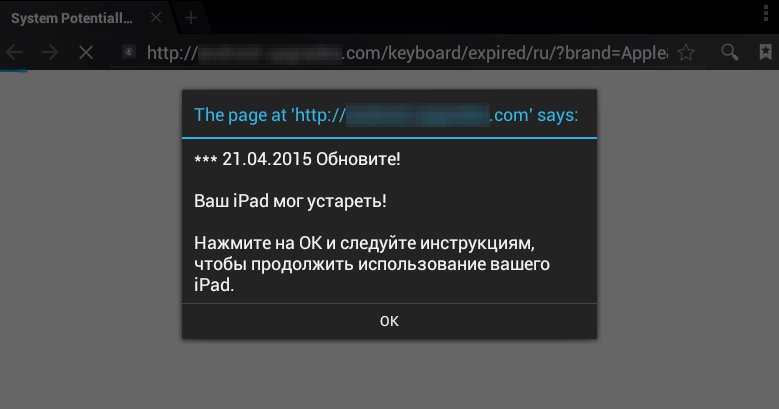
MobiDash adware isn’t exactly the most dangerous infection by itself but because it shows the user various ads, some of which could be dangerous, it’s best to get rid of it as soon as possible. MobiDash removal manually may be difficult as it hides itself quite well. It would be best to use some kind anti-virus app to remove MobiDash.
How does MobiDash install?
FaceApp was popular back in 2017 but has recently went viral again due to its aging feature that accurately ages people in photos. Obviously scammers saw a great opportunity to make some money so they started using FaceApp’s popularity to distribute the MobiDash adware. Only users who download the app from unreliable sources are in danger of infection. If you use legitimate app stores like Google Play or the App Store, you’ll be fine.
Third-party app stores are often full of various adware and potentially dangerous apps pretending to be legitimate. Because those stores are generally not monitored for bad apps, plenty of users end up installing them. This is why it’s better to stick to legitimate app stores, which while not perfect at least try to stop the malicious apps. Despite them being a much safer option, Google Play and the App Store can sometimes miss questionable apps and allow them on the stores. This is why it’s recommended to always check the developer, reviews, etc., before installing any apps, even if they’re from legitimate sources.
What does MobiDash do?
MobiDash is adware. When users download and try to install the fake FaceApp, they are informed that the installation failed. Any obvious signs of the fake app are removed but a malicious module remains. There are reportedly 800 different module modifications that can be installed.
Once it installs onto the device, MobiDash will start displaying advertisements on your screen. Ads on your phone or tablet screen are particularly annoying because of how intrusive they are. It’s also easier to accidentally click on them, making them somewhat dangerous ads. It’s not recommended to engage with any ads that randomly show up on your screen. They could lead to phishing sites or ones hosting malware.
MobiDash removal
If you can recall downloading FaceApp from an unreliable source, and it did not install properly, you likely have MobiDash on your smartphone or tablet. It could be difficult to delete MobiDash manually as it hides itself to avoid this scenario. It may be better to use anti-virus software to uninstall MobiDash from your device.
Offers
Download Removal Toolto scan for MobiDashUse our recommended removal tool to scan for MobiDash. Trial version of provides detection of computer threats like MobiDash and assists in its removal for FREE. You can delete detected registry entries, files and processes yourself or purchase a full version.
More information about SpyWarrior and Uninstall Instructions. Please review SpyWarrior EULA and Privacy Policy. SpyWarrior scanner is free. If it detects a malware, purchase its full version to remove it.

WiperSoft Review Details WiperSoft (www.wipersoft.com) is a security tool that provides real-time security from potential threats. Nowadays, many users tend to download free software from the Intern ...
Download|more


Is MacKeeper a virus? MacKeeper is not a virus, nor is it a scam. While there are various opinions about the program on the Internet, a lot of the people who so notoriously hate the program have neve ...
Download|more


While the creators of MalwareBytes anti-malware have not been in this business for long time, they make up for it with their enthusiastic approach. Statistic from such websites like CNET shows that th ...
Download|more
Quick Menu
Step 1. Uninstall MobiDash and related programs.
Remove MobiDash from Windows 8
Right-click in the lower left corner of the screen. Once Quick Access Menu shows up, select Control Panel choose Programs and Features and select to Uninstall a software.
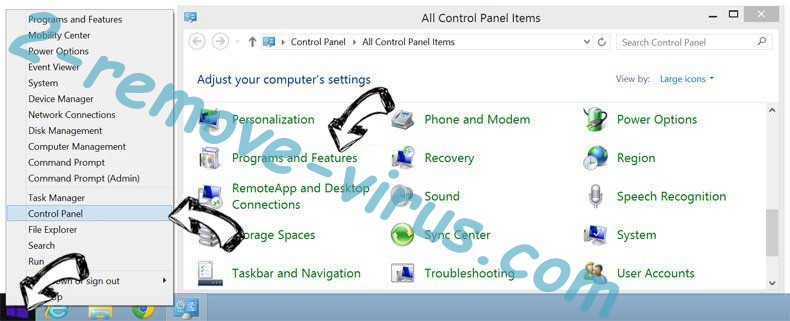

Uninstall MobiDash from Windows 7
Click Start → Control Panel → Programs and Features → Uninstall a program.
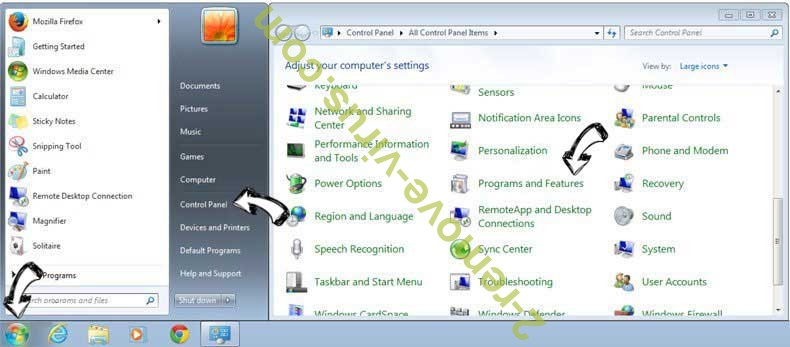

Delete MobiDash from Windows XP
Click Start → Settings → Control Panel. Locate and click → Add or Remove Programs.
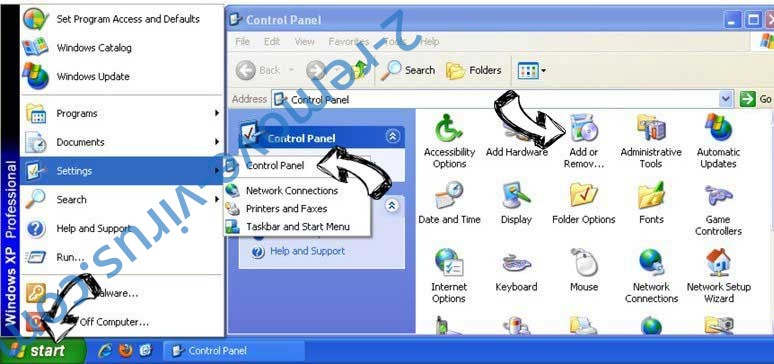

Remove MobiDash from Mac OS X
Click Go button at the top left of the screen and select Applications. Select applications folder and look for MobiDash or any other suspicious software. Now right click on every of such entries and select Move to Trash, then right click the Trash icon and select Empty Trash.
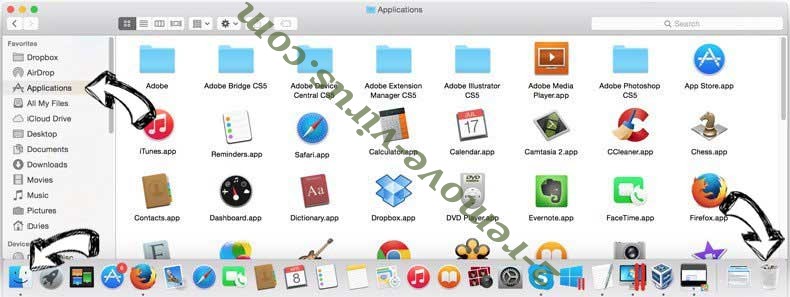

Step 2. Delete MobiDash from your browsers
Terminate the unwanted extensions from Internet Explorer
- Tap the Gear icon and go to Manage Add-ons.

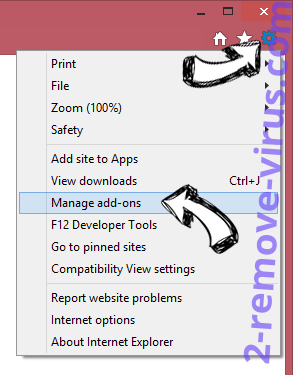
- Pick Toolbars and Extensions and eliminate all suspicious entries (other than Microsoft, Yahoo, Google, Oracle or Adobe)

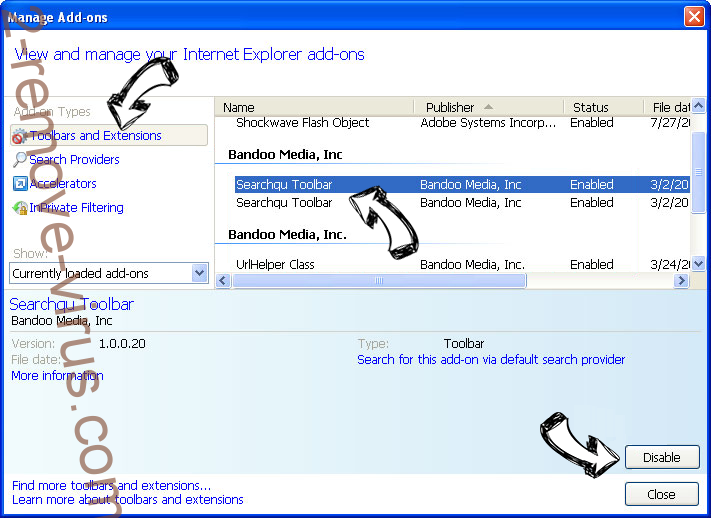
- Leave the window.
Change Internet Explorer homepage if it was changed by virus:
- Tap the gear icon (menu) on the top right corner of your browser and click Internet Options.

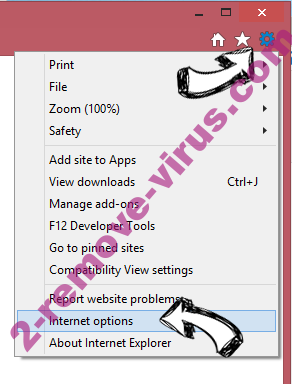
- In General Tab remove malicious URL and enter preferable domain name. Press Apply to save changes.

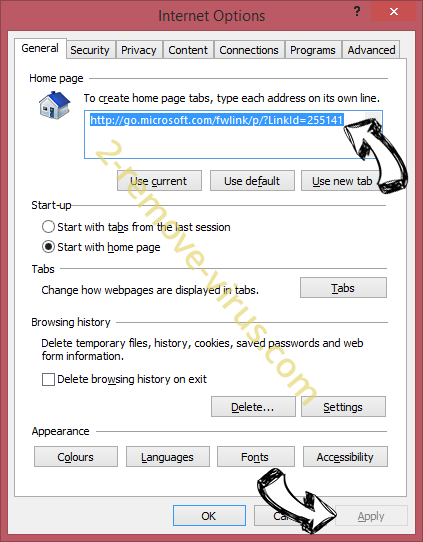
Reset your browser
- Click the Gear icon and move to Internet Options.

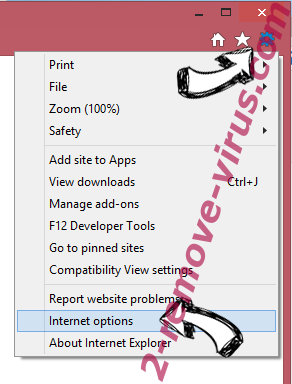
- Open the Advanced tab and press Reset.

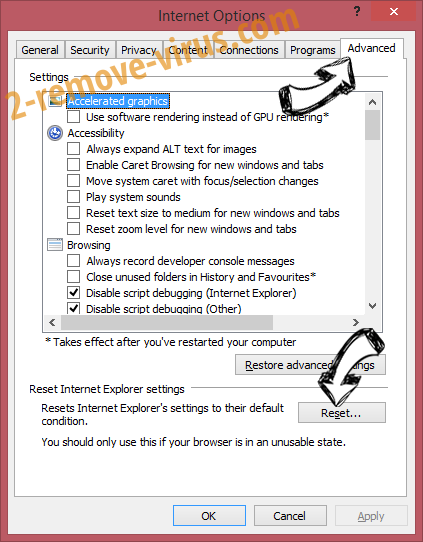
- Choose Delete personal settings and pick Reset one more time.

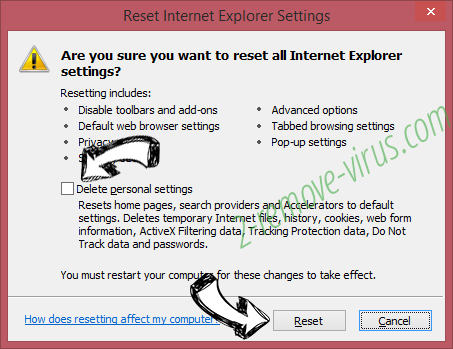
- Tap Close and leave your browser.

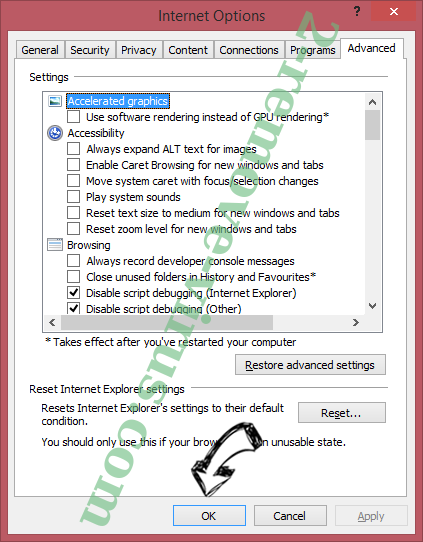
- If you were unable to reset your browsers, employ a reputable anti-malware and scan your entire computer with it.
Erase MobiDash from Google Chrome
- Access menu (top right corner of the window) and pick Settings.

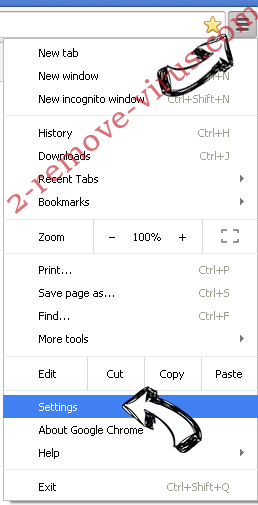
- Choose Extensions.

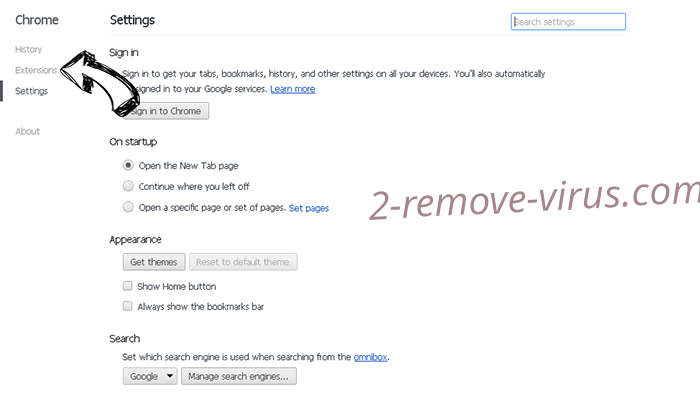
- Eliminate the suspicious extensions from the list by clicking the Trash bin next to them.

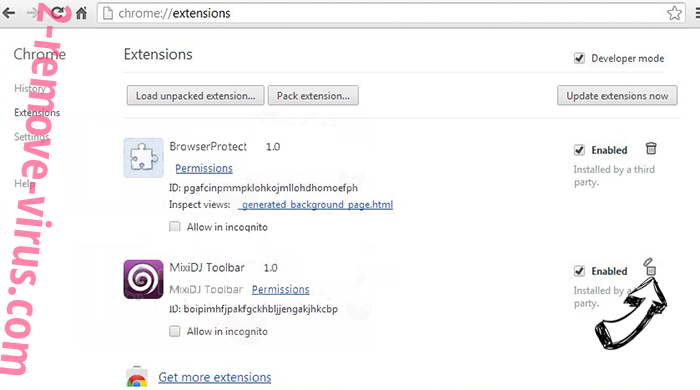
- If you are unsure which extensions to remove, you can disable them temporarily.

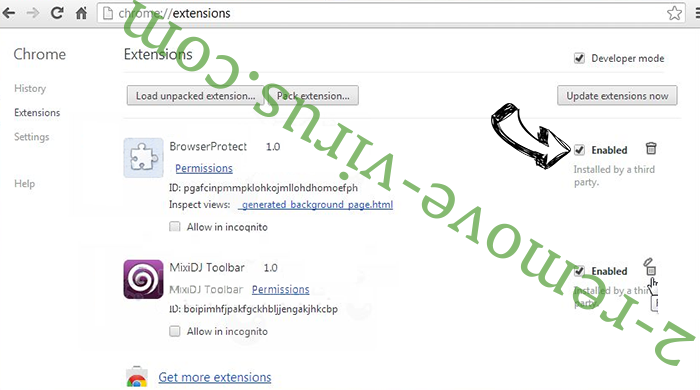
Reset Google Chrome homepage and default search engine if it was hijacker by virus
- Press on menu icon and click Settings.

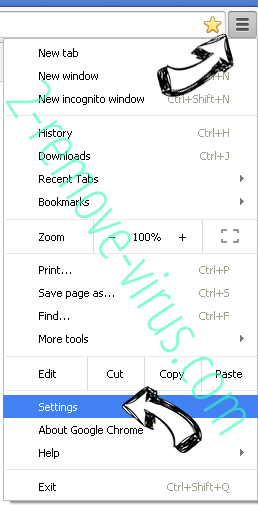
- Look for the “Open a specific page” or “Set Pages” under “On start up” option and click on Set pages.

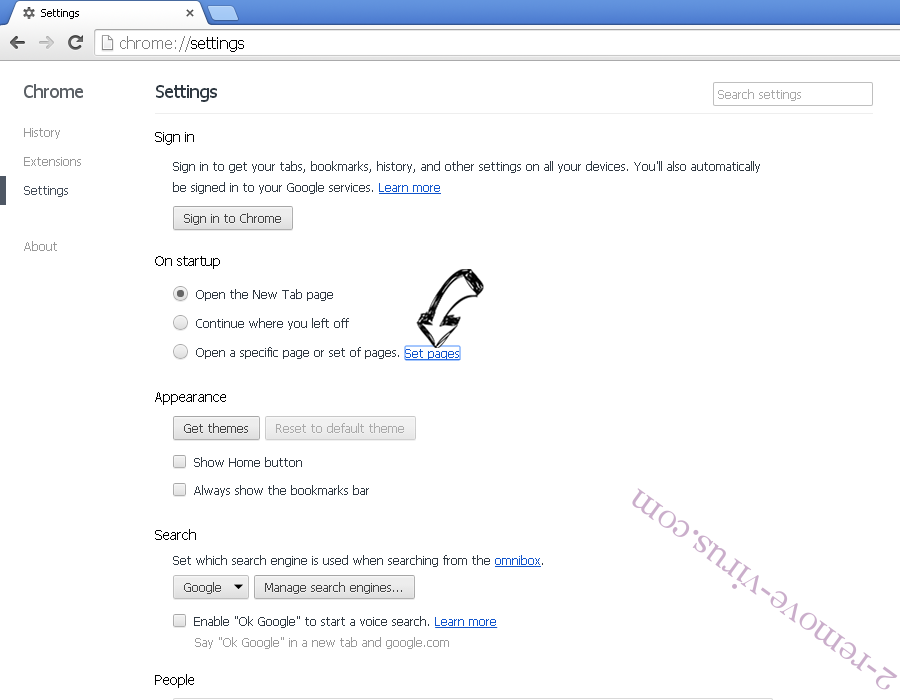
- In another window remove malicious search sites and enter the one that you want to use as your homepage.

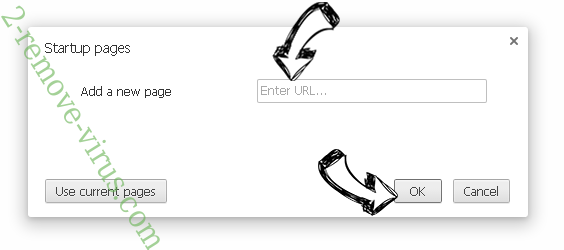
- Under the Search section choose Manage Search engines. When in Search Engines..., remove malicious search websites. You should leave only Google or your preferred search name.

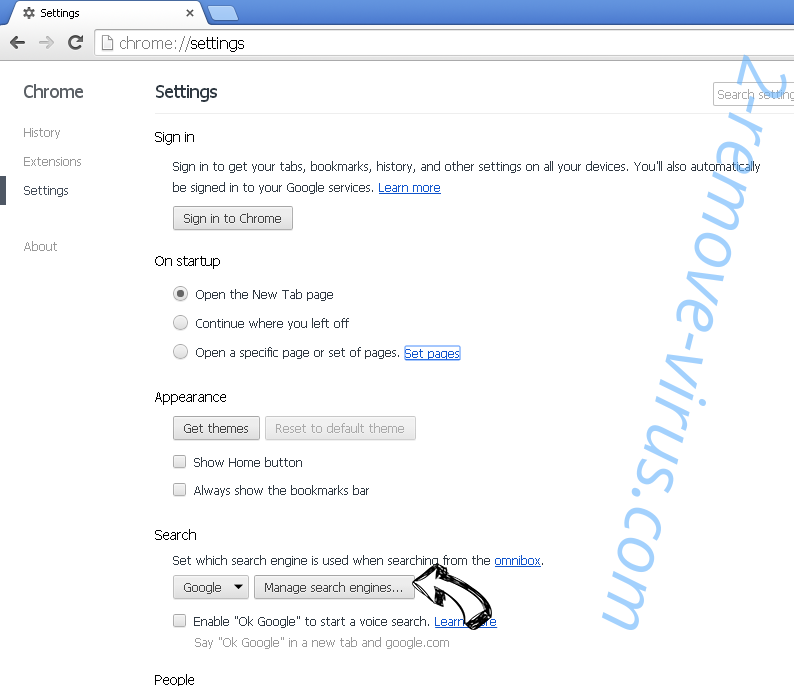

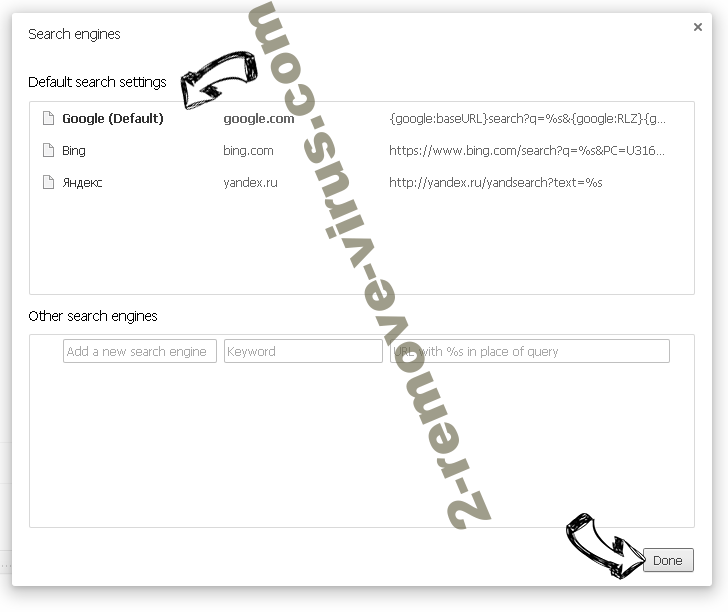
Reset your browser
- If the browser still does not work the way you prefer, you can reset its settings.
- Open menu and navigate to Settings.

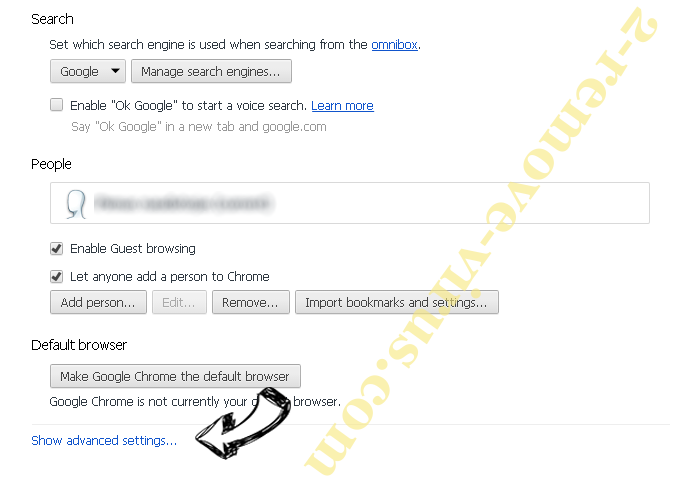
- Press Reset button at the end of the page.

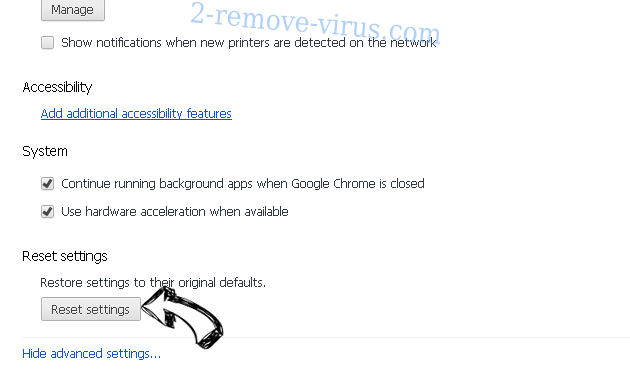
- Tap Reset button one more time in the confirmation box.

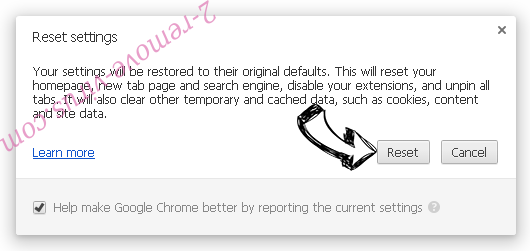
- If you cannot reset the settings, purchase a legitimate anti-malware and scan your PC.
Remove MobiDash from Mozilla Firefox
- In the top right corner of the screen, press menu and choose Add-ons (or tap Ctrl+Shift+A simultaneously).

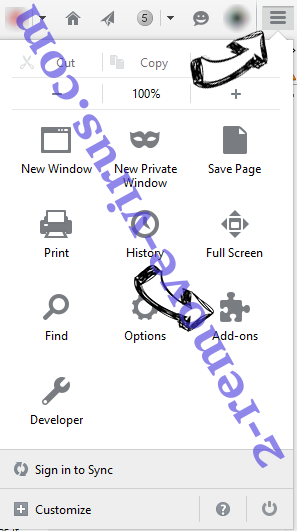
- Move to Extensions and Add-ons list and uninstall all suspicious and unknown entries.

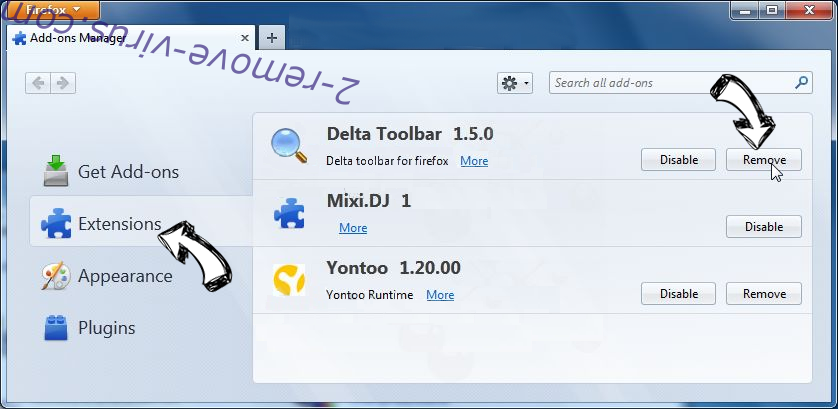
Change Mozilla Firefox homepage if it was changed by virus:
- Tap on the menu (top right corner), choose Options.

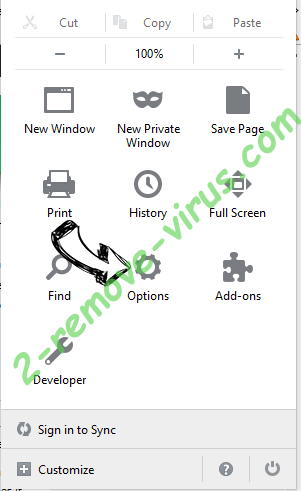
- On General tab delete malicious URL and enter preferable website or click Restore to default.

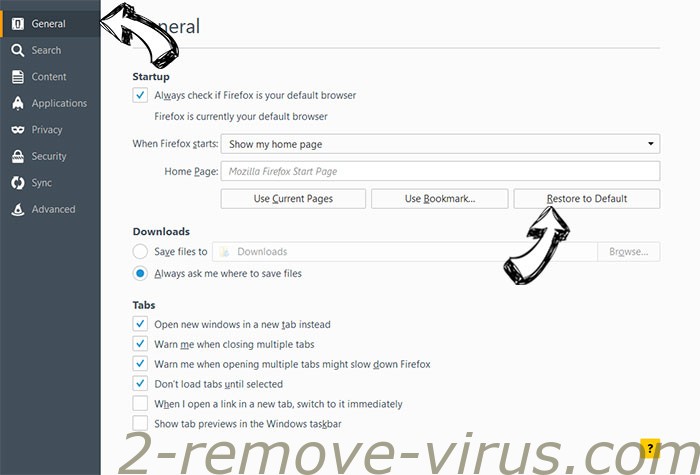
- Press OK to save these changes.
Reset your browser
- Open the menu and tap Help button.

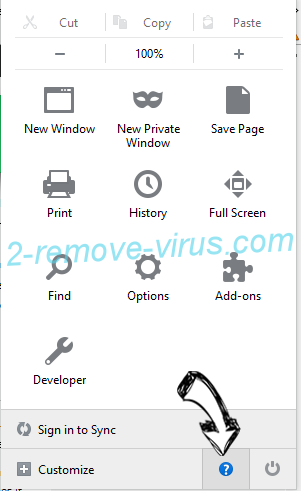
- Select Troubleshooting Information.

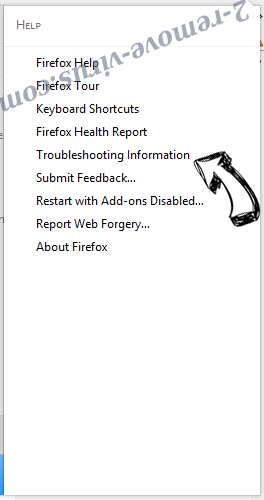
- Press Refresh Firefox.

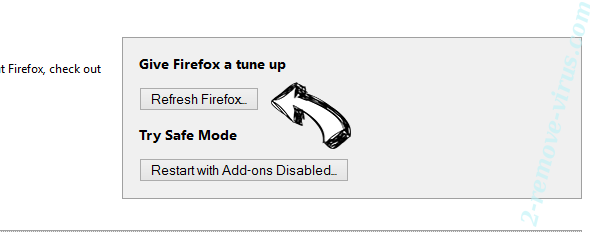
- In the confirmation box, click Refresh Firefox once more.

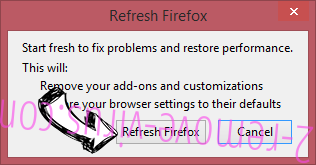
- If you are unable to reset Mozilla Firefox, scan your entire computer with a trustworthy anti-malware.
Uninstall MobiDash from Safari (Mac OS X)
- Access the menu.
- Pick Preferences.

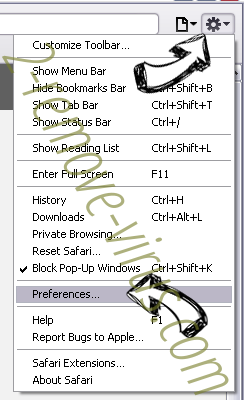
- Go to the Extensions Tab.

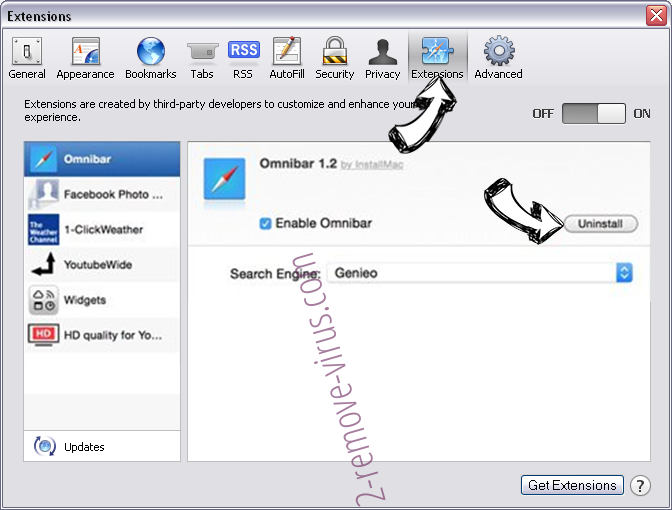
- Tap the Uninstall button next to the undesirable MobiDash and get rid of all the other unknown entries as well. If you are unsure whether the extension is reliable or not, simply uncheck the Enable box in order to disable it temporarily.
- Restart Safari.
Reset your browser
- Tap the menu icon and choose Reset Safari.

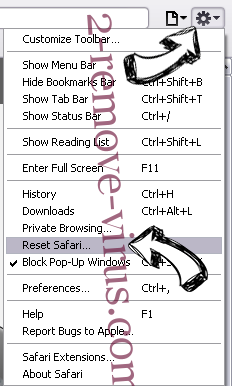
- Pick the options which you want to reset (often all of them are preselected) and press Reset.

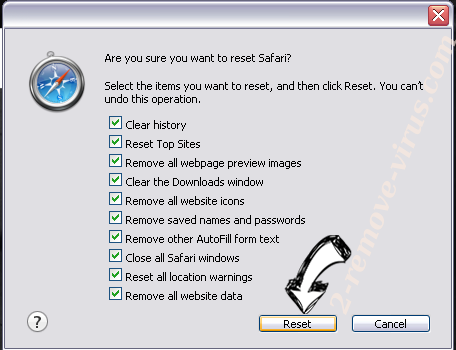
- If you cannot reset the browser, scan your whole PC with an authentic malware removal software.
